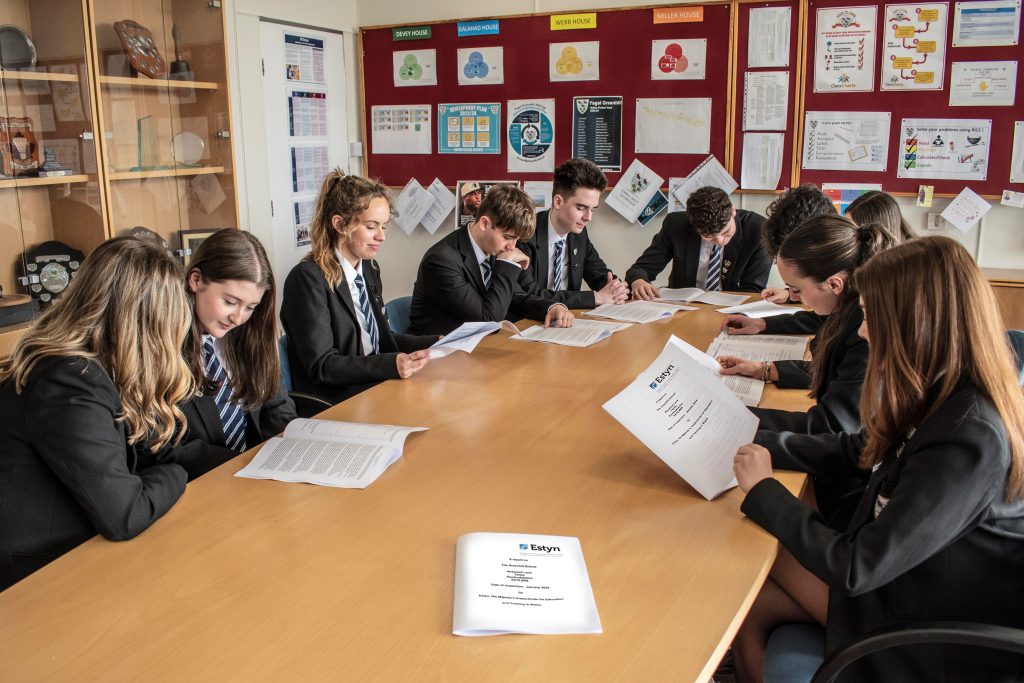Education
Plagiarism at Universities rises
THE FIRST weeks at University can be hectic.
There is finding friends, finding a decent takeaway, exploring the world in a number of ways that parents don’t like to acknowledge exist.
IGNORANCE NO EXCUSE
There are also, at most universities, a short bedding-in period when students are given an idea of the academic standards they are supposed to attain.
And one message is hammered home early and hammered home often: plagiarism can seriously mess up your academic future. If you are caught, you face a range of punishments which can include having to re-sit a course module up to expulsion from the University.
Even if you help someone cheat – because that is what plagiarism is, cheating – you can be penalised. The student who helps a friend cheat by letting them copy their submitted work is as guilty as the friend they try to ‘help’.
It’s not as if it’s a great mystery to students that the penalties for cheating are serious. That is spelled out by lecturers, and contained in every single course manual and the student code of conduct.
THE PRESSURE TO PERFORM
The pressure on students to perform can be tough. The increase in the numbers of students attending university has debased the value of a degree to the extent that some overseas universities no longer recognise UK universities’ award of one year Master’s degree, let alone regard undergraduate degrees as the hallmark of academic achievement. That applies to universities across the UK.
Most professions will specify that a 2:1 or better is required at undergraduate level for admission to postgraduate study. Graduate traineeships often specify the same requirement as a minimum.
Teaching, for example, is so desperately keen to recruit the best undergraduates and postgraduates that it offers incentives for those with better honours degrees in select subjects. The determination to shed the ‘those who can’t, teach’ label has created a marketplace in which a first class honours degree in a priority subject – physics, maths, chemistry, Welsh – can access £20K of funding for postgraduate qualification as a teacher. A 2:2 degree in any other subject gets you nothing in additional support.
CHEATING NOT NEW
A minority of students have always cheated, but the use of the internet has created an environment in which cheating has become easier. As higher education has become more accessible so has easy access to any number of shortcuts and back-alley ways to bumping up marks.
Looking at some standalone work-related training modules delivered by private companies, there is solid evidence that not only are the lecturers under-qualified to deliver the course material but that they turn a blind-eye to a culture of cut and paste.
The Herald is aware of one course tutor who actively encouraged one person attending such a course to simply resubmit their undergraduate coursework to gain the qualification they were seeking via the provider employing the tutor.
Self-plagiarism is still plagiarism and it is still cheating. More importantly, the training provider – or rather, the course tutor – was, of course, swindling the employer funding the training.
Does it matter?
Of course it does. In a working world in which employers look at qualifications first, how is the employer meant to distinguish between a qualification gained through GENUINE effort, work, and ability and one gained by a cheating recourse to Control-C followed by Control-V?
Those who get away with it are often smug, but they also liars and – ultimately – frauds.
BUYING FAILURE
Essay mills, the last resort of the truly idle cheat, claim to be able to deliver a guaranteed grade in any subject on any topic – for a price.
Essay mills represent cheating on a commercial and contractual scale. An essay mill is a business that allows customers to commission an original piece of writing on a particular topic so that they may commit academic fraud. Students commission others to write their coursework for them through an essay mill in the hope they will attain the grade required.
The Quality Assurance Agency for Higher Education said in 2016: “Providers of these services claim that the essays they produce are ‘100 per cent plagiarism free’, but that is a misleading claim. While the essay may not contain any plagiarised text itself, it becomes an act of plagiarism and academic dishonesty once the student submits it for assessment and represents it as his or her own work.
“If students submit work that is not their own, this compromises the fairness of the assessment process and poses a threat to the reputation of UK higher education. There are potentially serious ramifications for the public if people who falsely claim to be competent as a result of an academic award enter a profession and practise.”
In February this year, the UK Government began a consultation with QAA, universities, and the NUS. At that point, the UK Government suggested it was reluctant to go down the legislative route to try and tackle the problem, but in other countries both the provider AND the student would be guilty of a criminal offence.
Such is the scale of the issue across the UK, and not solely in Wales, that QAA has recommended that the advertising of ‘contract cheating’ services be banned and that criminal penalties be put in place for cheating by the use of essay mills. In New Zealand, essay mills have been fined and had their assets frozen.
PLAGIARISM IN WELSH UNIS
The issue has been thrown into sharp relief by a Freedom of Information Act request made by BBC Radio Wales.
Figures obtained by the broadcaster showed an increase in cases of alleged plagiarism from 1,370 2013/14 to 2,044 in 2015/16.
The BBC Freedom of Information request disclosed the following over the three academic years 2013/14 to 2015/16
- University of South Wales (approximately 30,000 students): 1,144 students accused of cheating, two prohibited from sitting future exams
- Cardiff Metropolitan University: 565 students accused of cheating, 12 prohibited from sitting future exams
- University of Wales Trinity Saint David – UWTSD: 928 students accused of cheating, 47 prohibited from sitting future exams
- Bangor University: 36 students accused of cheating, four prohibited from sitting future exams
- Cardiff University: 713 students accused of cheating, three prohibited from sitting future exams
- Swansea University: 1,157 students accused of cheating, 25 prohibited from sitting future exams
- Wrexham Glyndwr University: 103 students accused of cheating, three prohibited from sitting future exams
- Aberystwyth University: 551 students accused of cheating, 0 prohibited from sitting future exams
- The increased detection of plagiarism suggests that universities are becoming more adept at identifying incidents of academic fraud.
Many Universities use software to detect plagiarism, for example Turn-it-in. The software uses a document comparison algorithm that checks papers against a massive database of stored academic papers to identify cheats.
We asked UWTSD to comment on the figures.
Education
Conservative calls for academies and free schools rejected by Senedd

THE SENEDD has rejected calls to introduce free schools and academies after a report found major challenges in Wales’ education system.
Tom Giffard led a Conservative debate on educational attainment, warning that Wales is consistently at the bottom of UK-wide league tables.
The party’s new shadow education secretary pointed to an Institute for Fiscal Studies (IFS) report on education in Wales which found low outcomes and high levels of inequality.
Mr Giffard told the Senedd the IFS report highlights the pitfalls of the Welsh Government putting all its eggs in the basket of a skills-based approach.
Criticising a failure to measure skills inequalities and pupil progress, he stressed that Wales’ lower performance is due to policy and approach rather than funding or the pandemic.
He said: “It seems the Welsh Government relies on Pisa results to tell the story but then, when those same results are all too disappointing, they are dismissed in equal measure.”
Mr Giffard, who previously worked in a primary school, said declines in Pisa results can be observed in almost every country that has adopted a skills-based approach.
Raising concerns about disappointing Pisa results, the South Wales West MS pointed out that Wales saw the lowest scores in the UK for every subject.
Heledd Fychan, Plaid Cymru’s shadow education secretary, warned that Wales’ schools are understaffed and facing difficult decisions due to budgets being at breaking point.
She criticised implementation of the Welsh Government’s additional learning needs (ALN) reforms, saying schools cannot realise the aims without the budget to bring them to life.
Ms Fychan said Plaid Cymru agreed with much of the Tory motion but her party would not support calls for free schools and academies.
Sam Rowlands described the IFS report as damning, warning that the Welsh Government’s education reforms have been disastrous and have widened inequality.
The Tory MS claimed the reforms are systematically holding back disadvantaged children, saying: “The most remarkable fact is that the performance of disadvantaged children in England is either above or similar to the average for all children in Wales.”
Mr Rowlands added: “The poorest in England’s schools are doing the same or better than the Welsh average, thanks to ambition, the academies and free schools.”
Samuel Kurtz, a fellow Tory, said free schools and academies have driven up standards in England as he argued a Wales roll-out provides an opportunity to improve outcomes.
James Evans, the Conservative MS for Brecon and Radnorshire, highlighted the party’s pledge to get 5,000 more teachers into Wales’ classrooms.
Buffy Williams, the newly elected chair of the Senedd’s education committee, said Wales is undergoing a profound transformation propelled by ALN and curriculum reforms.
The Labour MS for Rhondda stressed the importance of listening to teachers and allowing ample time for the reforms to take root in classrooms across Wales.
Altaf Hussain recounted a conversation he had this week with a headteacher at one of the largest schools in his South Wales West region.
The Conservative said: “The major improvements they have been delivering to attainment and addressing behavioural issues are all at risk because of cuts to funding.
“Vital work undertaken to improve the lives of young people with additional needs could be halted because they cannot afford to continue employing the support workers.”
Lynne Neagle recognised the scale and seriousness of work still ahead to improve Wales’ education system, stressing: “I am not, in any way, complacent about that task.”
Wales’ newly appointed education secretary, who takes over from Jeremy Miles, said sustained improvement in attainment will be among her top priorities.
She told the chamber: “My early focus has been to listen closely to schools and where it is clear that schools seek more scaffolding.”
Ms Neagle said the Welsh Government will work with trade unions and employers to reduce workload and eliminate unnecessary red tape.
The Conservative motion was voted down, 14-35, following the debate on April 24. The motion as amended by the Welsh Government was agreed, 26-23.
Education
Ysgol Greenhill welcomes positive Estyn report

YSGOL Greenhill and Pembrokeshire County Council have welcomed a strong and very positive Estyn report for the school.
Estyn, the education and training inspectorate for Wales, has released its findings following a full inspection of the school, based in Tenby, carried out in January 2024.
The report noted:
- Under the supportive leadership of the Headteacher, staff at Ysgol Greenhill work together effectively to secure a happy and respectful learning community. Together they have developed a culture of openness and collaboration and share an ambitious goal to become a self-improving school.
- Leaders have secured improvements in many important areas of the school’s work, such as pupils’ learning and attitudes and the provision of care and support for pupils’ wellbeing.
- There is a suitably coordinated approach to improving pupils’ literacy, numeracy and digital skills, including support for pupils who have weak basic skills.
- Leaders seek pupils’ views regularly on the quality and suitability of its provision and make changes accordingly. This includes amendments to pupils’ learning experiences and to the provision for developing pupils’ personal and social education.
- Teachers plan their lessons well to ensure that pupils make good progress in their learning, subject knowledge and in developing relevant literacy and numeracy skills. Teaching assistants collaborate well with teachers to ensure that pupils who require support receive beneficial assistance as they work.
- The school has a broad and valuable range of provisions to support pupils’ well-being. These include individual, tailored resource centres that provide learning, behavioural and emotional support as well as a nurture centre for pupils with low attendance. The school also hosts a local authority learning centre for pupils with autistic spectrum conditions.
- The additional learning needs team work relentlessly to ensure that pupils who access these provisions are supported purposefully to enable them to make progress in their learning and social skills.
- Pupils have positive attitudes towards school and their learning. They feel safe and value the friendly and supportive nature of staff. They settle swiftly in lessons and engage well in activities. Pupils value the ‘Ready to Learn’ system which rewards positive behaviour and provides relevant support for any pupil who displays negative behaviour.
- Sixth form pupils are strong ambassadors of the school. They are friendly and polite towards visitors, conduct themselves well and are good role models for the younger pupils. Nearly all sixth form pupils say they are well supported to make progress in their academic, personal and social development. Many benefit well from valuable opportunities to lead and influence aspects of the school’s work.
- Senior prefects run the school’s numerous pupil groups, house captains and deputy captains organise and manage house activities and trained peer mentors support younger pupils with their learning and social skills. Overall, sixth form pupils develop into mature, knowledgeable young people who speak highly of the valuable experiences they have had during their time at school.
Headteacher, David Haynes said: “I am delighted and immensely proud of this report. The school has made consistent progress over recent years and I very much look forward to Ysgol Greenhill being placed amongst the best schools in Wales.

“I must pay tribute to the outstanding staff and governors who have worked relentlessly to ensure that every pupil is valued and that their wellbeing and progress in their learning has been paramount.
“Ysgol Greenhill is a school that our pupils, families and wider community can be justifiably proud of.”
Councillor Guy Woodham, Cabinet Member for Education and Welsh Language, said: “The school has made good progress in the past two years and this is reflected in the inspection report.
“The strong and dedicated leadership of the Headteacher has contributed significantly to the inspection outcome. Alongside this the contribution of the governing body and the support from the local authority has also helped the school to achieve well. I am confident the school will continue to improve and thrive.”
Chair of the Governing Body, Mrs Heulwen Lear added: “I am thrilled that the report recognises that ‘building a supportive and positive working relationship with their pupils is a strong feature of teaching at Ysgol Greenhill’. Many pupils make secure progress in their learning and subject knowledge and understanding.
“Ysgol Greenhill’s values of kindness, respect, empathy and the celebration of diversity are reflected well in its strong commitment to pupils’ personal and social development. Staff care deeply about the well-being of their pupils and are sensitive to their individual circumstances.”
The full report is available online.
Education
Milford Haven School pupils showcase artistic talent at the Torch

FROM May 3 to May 23, the Joanna Field Gallery at the Torch Theatre, Milford Haven will be exhibiting art works by pupils from Milford Haven Comprehensive School. This will be their fourth exhibition at the Torch.
The exhibition will see 44 pupils, aged 15 to 16, who undertook GCSE Art last summer taking part. Previously, the exhibition was held at the Milford Haven Town Hall before being relocated to the Torch.
“The exhibition is a celebration of art-work created by the pupils in their final year and a chance to see what they have achieved,” explained Katie George, the Art Technician at Milford Haven Comprehensive School.

Katie added: “This will be the ninth exhibition that the school has arranged. We started off in Milford Town Hall and then were very excited to be able to show our annual art event in the Torch. This will the fourth year showing in the Torch, which has been really fantastic as it gives us a chance to show the work of the pupils in a professional setting, and the pupils have spent a great deal of time and effort completing their masterpieces under the watchful eye of their Art Teacher, Mr Chris Green. They re encouraged to use as many different materials as possible ranging from painting in watercolours and acrylics, printing, sculpture, collage, clay work, printing and many more.
“The pupils work on their individual investigations. They pick a theme of their choice and then work through with artist research that connects to their theme. They then follow with lots of experimentation using different media and materials also painting, drawing and sketching. They then have their two-day exam, which they have spent time planning for using all the skills and materials they have now become familiar with to produce a final piece that will be shown in the exhibition,” explained Katie.

“It’s always exciting to tell the pupils that their final pieces will be on show in an exhibition in The Torch and generally they are excited for that to happen. They are so busy trying out new materials and ideas during their lessons, that they don’t really think about the exhibition itself until they are invited to see their work at the Torch. When they come with their parents or friends, it’s usually a real ‘Feel Good Factor’ of achievement, which is always great to see. The whole ambiance and setting created at the Torch is perfect,” concluded Katie.
To see the exhibition by pupils from Milford Haven Comprehensive School from 3 May to 23 May at the Joanna Field Gallery, Torch Theatre visit www.torchtheatre.co.uk or call by during Box Office opening hours.
-

 News6 days ago
News6 days agoPolice issue update on the search for Luke, missing from Pembroke Dock
-

 News1 day ago
News1 day agoPolice and air ambulances at ‘serious incident’ at West Wales school
-

 News5 days ago
News5 days ago20mph U-turn: Some roads will return to 30mph following public outcry
-

 Community5 days ago
Community5 days agoMiracle pup finds her forever home after heart-wrenching journey
-

 Crime1 day ago
Crime1 day agoPembrokeshire pensioner accused of 17 sexual offences against children
-

 Crime10 hours ago
Crime10 hours agoAll three school stabbing victims discharged from hospital, police confirm
-

 Community3 days ago
Community3 days agoCounty Hall to offer space for community banking
-

 Crime3 days ago
Crime3 days agoBrian Davis: Wanted on suspicion of commercial burglary























